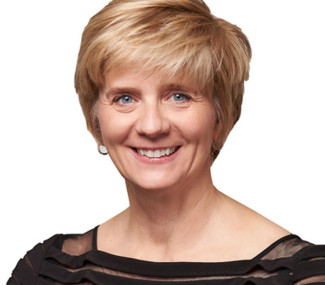RAPPORT // These are the New Faces of Connection and Influence


“What I hope to achieve with this protest is attention in the media, so that the media will write about the climate crisis, so that people will somehow open their eyes and see the crisis and treat it like a crisis and do something about it.”
— Greta Thunberg, September 2018
In August of 2018, a solo fifteen-year-old sat outside the Swedish parliament building, kicking off the first school strike for climate. In the 14 months since that courageous act, Greta Thunberg has moved millions of teenagers across the globe to become climate activists. She has presented her perspective on climate change to leadership forums including TEDx Stockholm, the United Nations Climate Change Conference, the World Economic Forum, the National Assembly in Paris, and the EU Parliament. The New Yorker has called her the “Joan of Arc for climate change.” Elon Musk tweeted his support of Greta’s activities. And on September 23, just days ago, she delivered her most passionate speech to date at the United Nations Climate Action Summit.
I’ve used this blog to share my strong views and concerns for the future with regard to climate change, and have focused attention on Greta in the past. This post is not meant to reiterate those points. Rather, it is to consider the changing nature of connection and influence.
The New Global Community
More than half of the world’s population has access to the Internet.[1] More than three billion people actively use social media.[2] The boundless scale and reach of social networks have shifted the paradigm of citizen expression. Communication structures that surpass hierarchies, geographies, societies, and even native languages are on the rise. Information and communication technologies have opened up spaces of power, influence, and association to new configurations of actors.
We have seen significant growth of online civil society activity, such as the youth climate change protests, enabled by communication networks. These platforms have made it possible to create virtual communities of similarly minded people and together, they are redefining the boundaries of civilization.[3]
Modern civil society is growing in diversity, becoming an ever-widening ecosystem of individuals, communities, and organizations. It is also evolving as new value systems and societal norms emerge out of our ability to connect and join our voices with others across the globe. In the few short decades since the advent of the Internet, it has become possible for more than half of our global population to find and connect with like-minded others who share experiences, heritage, and beliefs. With a few clicks of the keyboard, we can join or build a network filled with people from across the organization, town, country, or planet. They may look different, spend a different currency, or follow different leadership. Those details, once the sources of battles, don’t matter as much as our ability to be deeply connected on fundamentals.
The Future of Social Impact
The tech startup CommunityX catalyzes and provides a platform for the social impact interests and movements of young activists worldwide. Inspired by a tragic incident that left her father paralyzed from gunshot, Chloe Cheyenne Rogers founded the organization to give young activists tools to achieve social impact goals independent of institutional support.
In a recent interview on MSNBC, Chloe described how the convergence of technology and social activism drove the start of CommunityX. Her mission through the organization is to unite humanity and mobilize the world, which it is doing by bringing activists together via events and a mobile app. Algorithms, data, and connectivity in various forms are creating opportunities for people to form community around shared causes and in doing so, is creating greater social impact.
These new types of relationships are moving influence and action out of the hands of traditional, established entities. Seeking to make a bigger impact, individuals like Greta and Chloe have sidestepped the confines of bureaucracy, local politics, and even demographics. They are finding belonging in increasingly diverse communities bound together by purpose and shared outcomes. As they do, power structures are morphing and blending across traditional boundaries to create better ways to solve problems and improve lives.
Our expanding connectedness is fueling these relationships and erasing degrees of separation and the hierarchies that existing organizational models advocated. Traditional patterns of roles, authorities, and responsibilities are fracturing along new and sometimes unrecognizable lines, revealing gaps and opportunities for new ways to influence and to become an influencer.
Greta and Chloe will continue their separate journeys to connect like-minded people, to build platforms for global participation and to give voices to those that want to be heard. Their actions to activate humanity makes me wonder who will be next? Where will they come from and who will they rally? How will the act of influencing change in the future as we become even more networked and able to communicate with one another? And what is in store for those who hold onto the notion that one, solo fifteen year old can’t possibly make a difference?
{{cta(‘4f3e50c3-0bc2-4f4c-b791-0c9a84f60f09’)}}
[1]Internet; Our World in data. https://ourworldindata.org/internet
[2] Frost, Aja. “ Social Media Advertising 101: How to Make it Work for Your Small Business.” PaySimple. https://paysimple.com/blog/social-media-advertising-101-how-to-finally-make-it-work-for-your-small-business/
[3] World Economic Forum. 2013. World Scenario Series: The Future Role of Civil Society. World Economic Forum in Conjunction with KPMG. 2013. http://www3.weforum.org/docs/WEF_FutureRoleCivilSociety_Report_2013.pdf
- Categories
- Futures and Foresight
- Workforce of the Future


 About the Authors
About the Authors